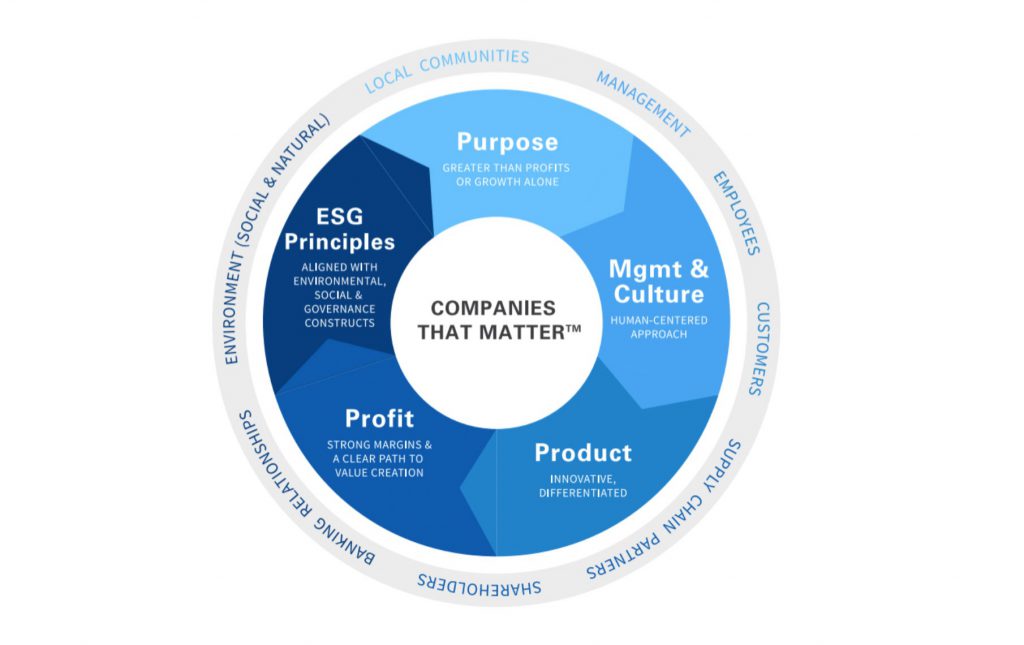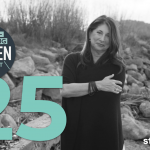Since the Business Roundtable announced its new description of the purpose of business — to be for all stakeholders instead of solely for shareholders — many organizations that have long been operating under a stakeholder governance model have warily celebrated the news.
It wasn’t even the next day before leaders of purpose-driven businesses, nonprofits, and more started to demand actions to support the rhetoric. Rightfully so. It’s not exactly the first time the Roundtable has announced a need to balance the concerns of other constituencies with shareholder interests.
As impact investors, we have built an entire business model focused on funding companies who have a strong potential for growth because they are creating companies that will help to solve our social and environmental challenges, in industries ranging from energy to health and beyond.
We believe that capitalism must be part of the solution if we are to fix the significant and intractable social and environmental challenges we face today.
For that to occur, we must invest in and build scalable and purpose-driven businesses that improve the world instead of simply extracting wealth over the short term for shareholders. After all, if we make short-term gains today at the expense of people and planet, who and what will support continued growth tomorrow?
At The Builders Fund, we believe fundamental problems with the current financial system have been major drivers of the intractable social and environmental challenges we face today, namely the focus on:
1) the rise of the Milton Friedman doctrine of primacy of the shareholder over other stakeholders;
2) extracting value for those shareholders vs. building systems of perpetual value creation for the broader stakeholder set (including shareholders); and
3) operating with an overtly short-term perspective.
We were disappointed to read the response issued by the Council of Institutional Investors (CII) — the very organizations that rely on long-term stability of the markets and the economy. The CII wrote that “accountability to everyone means accountability to no one,” arguing that CEOs and boards of directors will now have excuses to hide poor management mistakes. The Builders Fund for years has been making investments into CEOs, boards of directors, and businesses with a stakeholder governance model, and we can clearly see that doing so has created stronger management and stronger returns across our portfolio.
We focus on investing in and building companies with products, services and supply chains that intrinsically deliver positive social and environmental benefit and seek to build total systems responsibility across their corporate ecosystems.
Through purpose-driven cultures and activist brands with systems responsibility, we see these companies succeeding in the marketplace by leveraging values alignment to win the talent wars, increase employee and consumer engagement, drive customer loyalty, and lower the cost of customer acquisition. The future of capitalism must reflect a more integrated, systemically aware approach to investing and company-building.

Below are seven characteristics of our investment approach that we believe all investors can follow to help bring a more sustainable financial system to life:
1. Start using a regenerative systems view of the corporation.
The world at large is a complex, interdependent system with balanced exchanges of energy and a capacity to regenerate. By viewing the economy and its constituents in this light, an opportunity to create long term, shared value across the corporate “ecosystem” emerges.
2. Implement longer-term investment timelines.
Builders Fund created a 14-year time horizon from our inception, thereby supporting more exit flexibility than is typical in private equity and enabling a longer-term view to value creation. This allows us to make ongoing determinations of what is best for both value creation and the long-term health of the company.
3. Use independent third-party impact management.
By engaging each of our portfolio companies in the development and tracking of key impact performance indicators, as well as the annual review process associated with B Corporation certification, we can engage our management teams in an iterative dialogue about the holistic social and environmental impacts each company creates. This framework also allows companies to better measure their social and environmental impacts and provides a framework for Builders Fund to provide oversight, support, and feedback.
4. Invest in your employees.
We need to move away from measuring productivity and human activity as if our employees were machines. As Bob Chapman, author of Everybody Matters: The Extraordinary Power of Caring for Your People Like Family writes, “No one wants to be managed. … People want to be mentored. They want to be coached. They want to be led.” By treating employees as humans and as partners in our shared purpose changes your team from names and numbers on a spreadsheet to happy, fulfilled people who show up fully each day.
5. Understand your supply chain beyond pricing and volumes.
Every company has an impact through who and where its sources from—an impact that can be outsized in a global economy where wealthy nations source commodities at will from impoverished communities. One of our portfolio companies, Traditional Medicinals, stands as an example: a U.S. producer of teas, the company sources ingredients that require different climates from around the world. For each ingredient, the company does extensive research to add value to the communities it impacts and buys from. One of the most notable efforts they’ve launched is the Revive! Project, which was started in 2009 in six villages in the Jodhpur District of Rajasthan, India. These villages depend on the cultivation of the Senna plant (used in the company’s Smooth Move tea) for their livelihood. To date, Traditional Medicinals has invested more than $1,000,000 into the Revive! Project, partnering with the NGO Womenserve, to implement initiatives including community organization and development, medical support, water and food security, education for children, economic development, and women’s empowerment.
6. Invest in diverse leaders.
Studies show that companies that are gender diverse are 15 percent more likely to outperform others, and companies in the top quartile for racial and ethnic diversity are 35 percent more likely to have financial returns above their respective national industry medians. Each company in our portfolio has someone who identifies as female as its founder or CEO, in addition to other C-Suite level positions.
7. Build authentic cultures and an activist brands around a purpose greater than a paycheck or the profit motive alone.
To truly engage a company’s stakeholders — from employees to consumers to the communities in which a business exists — in an authentic way that aligns with a company’s “reason for being,” we encourage portfolio companies to stand for something. For example, Urban Remedy is a vocal thought leader in the food industry for sustainable food production and healthier diets. MPOWERD provides clean energy products to the millions of people globally who lack consistent access to a grid. Their brands authentically speak to these issues and their cultures attract team members who believe in the importance of that work.
At our core, Builders Fund is trying to help reform the current system through demonstrated action on the ground. We are finding, through our work, that this model of investing is outperforming. We see increased value creation through our ability to attract and retain talent, through deeply engaged and productive employees that create better service experiences, through brands that connect more meaningfully with their customers and consumers, through improved customer acquisition driven by higher net promoter scores, through better risk management and stronger relationships with our partners. Focusing on better management of environmental, social and governance factors within a systems view is, ultimately, just good business.





